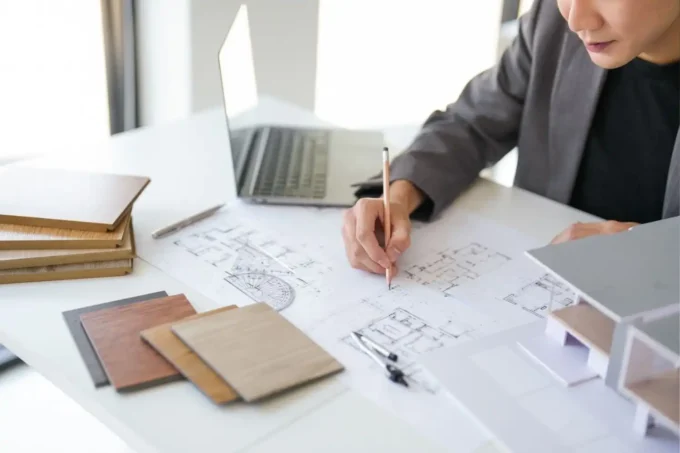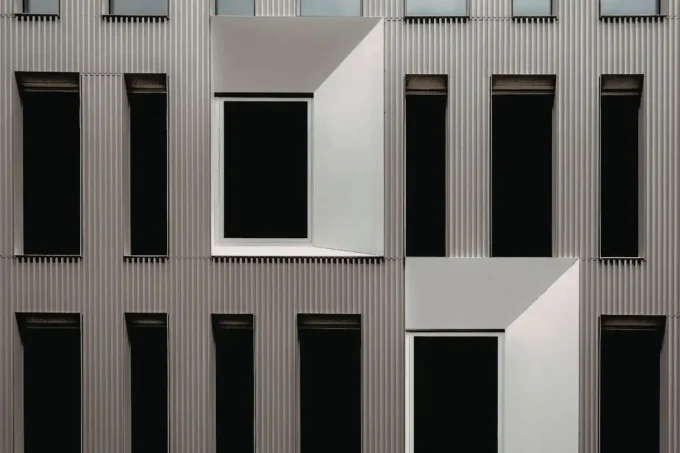Breathing new life into an old house can be an exciting journey. We often find ourselves captivated by the charm of vintage homes, but they can feel a bit outdated. The challenge lies in merging their unique character with modern aesthetics and functionality.
By embracing contemporary design elements, we can enhance the beauty of these classic spaces while ensuring they meet today’s lifestyle needs. From smart home technology to open floor plans, there are countless ways to create a harmonious blend of old and new. Let’s explore how we can transform these timeless treasures into stylish, modern havens that reflect our tastes and values.

Understanding the Concept of Modernization
Modernizing an old house involves integrating contemporary features while preserving its historical essence. This balance between old and new creates a unique living space that meets today’s needs.

Importance of Blending Old and New
Blending old and new enhances a home’s character while increasing its value. Incorporating modern technology offers comfort and convenience, like smart thermostats and energy-efficient appliances. Adjusting layouts allows for open floor plans, promoting social interaction. Retaining original features, such as moldings and fireplaces, adds depth and charm. Cohesively merging elements fosters a harmonious living environment that reflects our lifestyle and values.
Aesthetic Considerations
Aesthetic choices shape the overall look and feel of the modernized space. Selecting a neutral color palette promotes a fresh, airy atmosphere while allowing architectural elements to stand out. Using modern materials, like glass and metal, contrasts nicely with traditional features. Incorporating contemporary lighting fixtures highlights focal points and enhances the home’s ambiance. Arranging furniture in a functional layout optimizes space and flow, making the area more welcoming and usable. Each aesthetic decision contributes to the desired modern vibe without overshadowing the home’s original charm.
Key Areas to Focus On
To modernize an old house effectively, targeting specific areas enhances functionality and aesthetics while preserving historical charm. Below are key components that require attention during the transformation process.

Kitchen Renovations
Kitchen renovations serve as a focal point in modernizing homes. Upgrading appliances to energy-efficient models improves functionality. Implementing open shelving optimizes space and creates a visually appealing display. Choosing quartz or granite countertops adds sophistication, while incorporating smart home features, like smart ovens, enhances convenience. Replacing old cabinetry with sleek designs, including soft-close mechanisms, improves usability.
Bathroom Updates
Updating bathrooms significantly elevates comfort and style. Installing modern fixtures, such as rainfall showerheads and vessel sinks, adds a contemporary touch. Adding additional storage solutions, like built-in cabinetry or floating shelves, enhances organization. Opting for heated flooring increases warmth and luxury during colder months. Utilizing tiles with geometric patterns or neutral tones creates a fresh, inviting atmosphere.
Living Space Improvements
Living space improvements focus on creating a seamless flow throughout the home. Opening up walls for an open floor plan maximizes natural light and promotes interaction. Updating lighting fixtures with pendant lights or recessed lighting brightens the environment. Replacing old windows with energy-efficient models not only improves the view but also enhances insulation. Choosing a neutral color palette with bold accent pieces allows for personal expression while retaining cohesiveness. Emphasizing smart technology integration, like automated lighting and climate systems, ensures modern comfort throughout the living area.
Techniques for Modernizing
We can effectively modernize an old house by applying various techniques that enhance functionality and aesthetic appeal while respecting its historical charm.

Incorporating Open Floor Plans
Incorporating open floor plans transforms segmented spaces into fluid areas, fostering interaction and mobility. We can remove non-load-bearing walls to create expansive living areas, integrating kitchen and dining spaces. This layout not only enhances natural light flow but also encourages a modern and inviting atmosphere. For instance, designing multifunctional zones, such as a combined living-dining area, fosters versatility, making it suitable for both entertaining and everyday use.
Utilizing Modern Materials
Utilizing modern materials significantly impacts both style and durability. We can opt for energy-efficient windows and eco-friendly insulation to improve efficiency and reduce energy costs. Choosing materials like quartz or recycled glass for countertops offers a contemporary aesthetic while ensuring easy maintenance. Additionally, incorporating metal accents, such as stainless steel fixtures or aluminum finishes, adds a sleek, modern touch to traditional elements. Employing these materials blends the old with the new, resulting in a cohesive and stylish appearance.
Sustainable Practices in Modernization
Integrating sustainable practices during the modernization of an old house enhances energy efficiency and reduces environmental impact. By focusing on energy efficiency upgrades and eco-friendly materials, we create a more sustainable living space.

Energy Efficiency Upgrades
Energy efficiency upgrades significantly reduce energy consumption and costs. Installing energy-efficient appliances can lower electricity bills while contributing to a more sustainable home environment. Replacing old HVAC systems with high-efficiency models ensures better climate control and lower energy usage. Sealing gaps and adding weather stripping enhances insulation, preventing heat loss during colder months. Additionally, incorporating solar panels provides an alternative energy source, reducing reliance on fossil fuels. Utilizing LED lighting throughout the home will lower energy consumption while providing adequate illumination.
Eco-Friendly Materials
Choosing eco-friendly materials plays a pivotal role in modernizing an old house sustainably. We can opt for recycled materials, like reclaimed wood for flooring or furniture, to minimize ecological impact. Using low-VOC paints ensures indoor air quality remains high while offering various color options for aesthetics. Selecting sustainable cabinetry and countertops, such as those made from bamboo or recycled glass, reduces reliance on non-renewable resources. Additionally, incorporating natural stone or brick elements maintains a connection to the home’s historical roots while showcasing modern, sustainable choices. Each selection contributes to a healthier living environment and aligns with eco-conscious principles.
Conclusion
Modernizing an old house requires a careful balance between contemporary features and historical charm. We emphasize the importance of strategic updates that retain the essence of vintage homes while enhancing functionality. Each renovation choice contributes significantly to the overall atmosphere, blending classic aesthetics with modern convenience.
Focusing on key areas such as the kitchen, bathroom, and living spaces allows us to create inviting environments tailored to today’s lifestyles. Kitchen upgrades, including energy-efficient appliances and stylish countertops, play a pivotal role in improving usability. Updating bathrooms with sleek fixtures and efficient storage solutions enhances both comfort and style.
Utilizing open floor plans fosters fluid living areas that promote engagement and maximize natural light. By removing non-load-bearing walls, we create multifunctional spaces perfect for entertainment and daily activities.
Sustainability forms an essential aspect of this transformation. Incorporating energy-efficient systems and eco-friendly materials not only reduces energy consumption but also fosters a healthier home environment. The selection of reclaimed wood, low-VOC paints, and sustainable cabinetry reinforces the connection between modern upgrades and the historical roots of the property.
Ultimately, the journey of modernizing vintage homes reflects our commitment to enhancing character while improving quality of life. Each update serves to honor the past while laying the foundation for a stylish, functional future.
- blend vintage and modern
- combining vintage with contemporary
- contemporary style in old home
- contemporary touches in vintage homes
- contemporary updates in historic homes
- contemporary vintage decor
- integrating old and new styles
- making old homes modern
- modern home in old building
- modernize historic home
- modernize old house
- modernizing traditional homes
- old house renovation tips
- preserving vintage with modern updates
- renovate old home modern
- update vintage house
- vintage architecture modern interior
- vintage charm modern design
- vintage modern fusion
- vintage modern style















Leave a comment